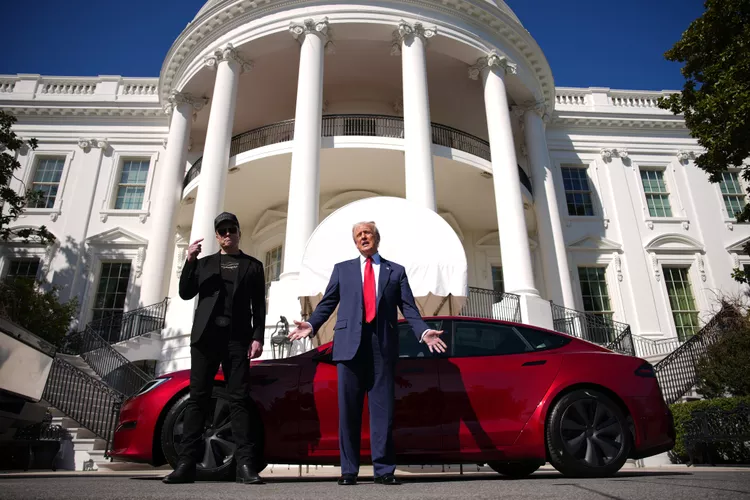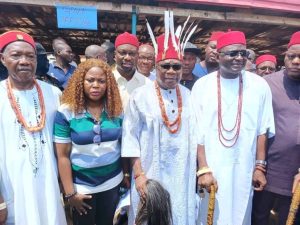What Happened to the ‘Great Relationship’ President Trump Had With Elon Musk?
In the high-octane theater of American politics and business, relationships between power brokers can pivot in the blink of an eye. That appears to be the case with the once-celebrated alliance between former President Donald Trump and tech mogul Elon Musk. What began as a strategic partnership between two of the most influential men in the world has recently devolved into a high-profile public split, aired across media channels and social platforms. The fallout offers a sobering glimpse into how political ambitions, economic philosophies, and personal egos can clash spectacularly, even when mutual interests once aligned.
The Rise of a Political-Tech Alliance
Donald Trump and Elon Musk were not always ideological soulmates, but their relationship began to warm significantly during Trump’s presidency. Musk, whose companies—Tesla, SpaceX, Neuralink, and The Boring Company—often intersected with federal policies, was a strategic ally to have on board. Trump, recognizing Musk’s cultural and financial clout, especially among younger, tech-savvy voters and libertarian-leaning entrepreneurs, extended invitations to Musk to join advisory councils and participate in national discussions on innovation, infrastructure, and space.
Their collaboration deepened further during Trump’s 2024 presidential campaign, when Musk’s indirect and sometimes direct support lent technological legitimacy and financial resources to Trump’s re-election bid. Musk’s influence in the realms of AI, EVs, and digital communication made him a valuable ally. In return, Musk enjoyed regulatory leniency, favorable procurement contracts, and an open channel to the White House.
The Breaking Point: The “Big, Beautiful Bill”
Tensions began to surface in 2025 with the introduction of Trump’s flagship legislation—a sweeping taxation and infrastructure bill dubbed the “Big, Beautiful Bill.”
Musk took to X (formerly Twitter), the social media platform he owns, to denounce the bill as a bloated package filled with “disgusting pork” and unnecessary spending. His comments cut deep, not only undermining Trump’s economic agenda but also signaling a fracture in their alliance.
Trump, known for his combative style, fired back via Truth Social, alleging that Musk’s opposition stemmed from self-interest, particularly concerning provisions that scaled back federal subsidies for electric vehicles. “Elon’s wearing thin,” Trump declared, adding that eliminating Musk’s government contracts would save “billions and billions of dollars.”
A Clash of Titans: Ideology Meets Business Interest
At its core, the fallout appears to be rooted in diverging visions of economic stewardship. Musk, an ardent critic of excessive government spending and centralized control, saw the bill as antithetical to fiscal responsibility. His libertarian streak, often cloaked in entrepreneurial language, positioned him against the very apparatus that had once propped up segments of his empire.
YOU MAY READ
Elon Musk Condemns President Trump’s Signature Budget Bill, Calls It “Abomination”
Trump, meanwhile, was attempting to rebrand his administration’s second term as one focused on domestic reinvestment—infrastructure, jobs, and manufacturing. For Trump, Musk’s criticism struck at a critical moment, threatening both the perception and momentum of the legislative effort.
Market Reactions and Business Consequences
As the public spat intensified, markets reacted predictably. Tesla stock saw a sharp decline, partly due to investor concerns that the administration’s wrath could manifest in regulatory roadblocks, contract cancellations, or policy reversals. Meanwhile, shares of Trump Media & Technology Group also dipped, signaling that the feud was unsettling to both camps’ economic ecosystems.
Analysts began to speculate on wider repercussions. Would Trump push for punitive regulations against Tesla? Would Musk retaliate by lobbying Congress or supporting a third-party candidate? Would their feud further polarize corporate America?
Fallout in the Tech and Political Spheres
The implications of this schism reach far beyond two powerful men trading barbs. Musk had only recently stepped down from his role as head of the Department of Government Efficiency, a short-lived Trump-era initiative aimed at streamlining bureaucracy. His resignation, initially seen as a strategic retreat to focus on his companies, now appears more like a calculated disengagement from a political orbit he no longer trusted.
Moreover, Musk’s broader ambitions in space, AI, and infrastructure—many of which require cooperation or at least non-interference from the federal government—could face renewed scrutiny or political resistance. Likewise, Trump risks alienating a slice of the libertarian and pro-tech base that once saw Musk as a bridge between innovation and governance.
The Personal Is Political
Both men thrive on attention, but their public personas are rooted in different archetypes. Trump is the combative populist, rallying crowds with blunt slogans and combative energy. Musk is the tech visionary, whose cryptic posts and futuristic ambitions often blur the line between genius and recklessness.
Their mutual admiration once stemmed from a shared disdain for traditional political correctness, a love of disruption, and a transactional view of alliances. But the unraveling of their relationship underscores the limits of such arrangements when long-term philosophies collide.
Musk’s claim that Trump would have “lost the election without me” was not just an assertion of influence—it was a challenge to Trump’s narrative of political invincibility. For a former president who prizes loyalty above all, such statements may have sealed the rift.
What Next?
Where this feud leads is uncertain, but a few trajectories are worth watching:
- Policy Retaliation: Trump may follow through on threats to cut subsidies and contracts tied to Musk-affiliated companies. This could hurt Tesla, SpaceX, and related ventures.
- Political Realignments: Musk, who has often teased the idea of political independence or even forming a new party, might lend support to alternative candidates or causes, fracturing conservative unity.
- Market Volatility: Investors are already jittery, and prolonged conflict could deter institutional support for Tesla and other Musk ventures, especially if regulatory headwinds increase.
- Media Wars: With Musk owning X and Trump active on Truth Social, their platforms could become battlegrounds for public influence, further polarizing their followers.
Conclusion: The End of a Strategic Bromance?
The relationship between Donald Trump and Elon Musk was never built on ideology alone. It was a marriage of convenience, rooted in mutual benefit and shared disdain for establishment norms. But as their ambitions evolved and their interests diverged, conflict became inevitable.
In a hyper-connected age where power, business, and politics intersect constantly, their feud is more than personal drama. It’s a reflection of broader tensions in American society—between regulation and innovation, populism and futurism, ego and governance.
Whether this marks a temporary cooling or a permanent split remains to be seen. What is clear is that when titans fall out, the tremors are felt far and wide.





